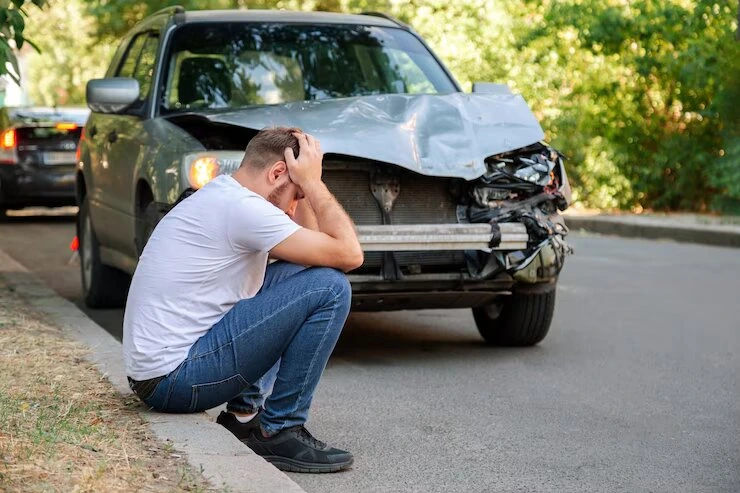personal injury lawyers
Fighting for maximum injury compensation for you and your family
No Fees Until We Win


PTSD After Car Accident in NJ: Causes, Treatment and Compensation
Car accidents can leave a lasting impact, not just physically but also mentally.
One significant aspect that often goes unnoticed is the development of Post Traumatic Stress Disorder (PTSD) after such incidents.
In this comprehensive guide, we’ll look into what PTSD is, its symptoms following a car accident in New Jersey, the avenues for compensation, treatment factors specific to the state, ways to prove PTSD, and the importance of consulting an experienced car accident attorney.

Comprehensive Guide: What is PTSD?
Post Traumatic Stress Disorder, commonly known as PTSD, is a mental health condition that can arise following exposure to a traumatic event.
In the context of car accidents in New Jersey, individuals may experience persistent and distressing symptoms that significantly impact their daily lives.
PTSD is a psychological condition that can affect anyone who has been exposed to trauma, and car accidents, especially those involving severe injuries or loss, can be traumatic events triggering its development.
Symptoms of PTSD may surface immediately after the accident or manifest weeks or even months later, underscoring the importance of recognizing and addressing mental health concerns in the consequences of such incidents.
According to data from the National Institute of Mental Health, approximately 3.5% of adults in the United States, encompassing New Jersey residents, live with PTSD, highlighting the prevalence of this condition and the need for comprehensive support and understanding.
Most Common Symptoms of PTSD After Car Accidents in NJ
Understanding the signs of PTSD is important for seeking timely help and support.
Here are seven common symptoms that may arise after a car accident in New Jersey:
Flashbacks
One common symptom is flashbacks, where individuals may experience vivid and intrusive memories of the accident, feeling as if the traumatic event is happening again.
For instance, a person might find themselves reliving the screeching of tires or the impact of the collision, causing significant distress.
Nightmares
Another prevalent symptom, involves disturbing dreams related to the traumatic event, leading to sleep disturbances.
An individual may wake up startled, sweating, or experiencing a heightened sense of fear due to the vivid and distressing nature of these dreams.
This can contribute to sleep difficulties, exacerbating the overall impact on mental health.
Avoidance
A coping mechanism wherein individuals consciously steer clear of places or activities that remind them of the car accident.
For example, someone involved in a collision at an intersection may actively avoid that specific location or may be reluctant to drive altogether.
This avoidance can disrupt daily life and limit one’s ability to engage in routine activities.
Negative thoughts
A significant aspect of PTSD involves persistent beliefs about oneself, others, or the world.
For example, a person might develop a pervasive belief that they are no longer safe on the road, viewing all driving situations as inherently dangerous.
These negative thoughts can contribute to anxiety and further isolate individuals from routine activities.

How Can I Get Compensation for PTSD After a Car Accident in NJ?
Recovering from a car accident involves not just physical healing but also addressing mental health concerns like PTSD. Here’s how you can seek compensation:
- Medical Documentation: Keep records of all medical treatments and therapy sessions related to PTSD.
- Expert Testimony: Obtain statements from mental health professionals confirming the link between the accident and PTSD.
- Insurance Claims: Consult your auto insurance policy and file a claim for compensation for mental health treatment.
- Legal Assistance: Seek guidance from a car accident attorney, who specializes in PTSD cases.
PTSD Treatment Factors in New Jersey
Receiving the right treatment is essential for managing PTSD effectively. In New Jersey, the following factors come into play:
1. Access to Mental Health Professionals:
New Jersey boasts a diverse range of mental health services, ensuring individuals have access to qualified professionals specializing in trauma and PTSD.
This accessibility is vital for those seeking personalized and targeted therapeutic interventions to address the specific challenges associated with PTSD after a car accident.
2. Insurance Coverage:
Checking your insurance policy will help you comprehend the extent of coverage for mental health treatments, including therapy and counseling sessions.
Being aware of the financial aspects and potential reimbursement options can significantly ease the burden associated with seeking professional help, fostering a more sustainable and comprehensive approach to PTSD treatment.
3. Support Groups:
Connecting with individuals who have gone through similar experiences can offer valuable insights and coping strategies.
This community-based approach allows individuals to share their stories, express their emotions, and receive empathy from others who comprehend the unique challenges posed by PTSD.
How Can I Prove PTSD Due to Car Accidents in New Jersey?
Proving PTSD is necessary when seeking compensation. Consider the following steps:
- Documented Diagnosis: Obtain a clear diagnosis from a licensed mental health professional.
- Evidence Collection: Gather evidence such as accident reports, witness statements, and medical records.
- Expert Opinions: Seek expert opinions from professionals who can testify to the impact of the accident on your mental health.
- Consistent Therapy Records: Regular therapy sessions and consistent records can strengthen your case.
Speak with an Experienced Car Accident Attorney in New Jersey
Processing the legal complexities of a PTSD claim requires expertise, and seeking counsel from an experienced car accident attorney in New Jersey is pivotal.
When considering legal assistance, it is essential to reach out to a reputable firm that specializes in personal injury cases, such as the Rosengard Law Group.
Their team of dedicated attorneys understands the complex intersection of mental health and legal proceedings, ensuring that your case is approached with the sensitivity and expertise it deserves.
FAQs
Can PTSD Affect My Claim After Car Accidents in New Jersey?
Absolutely. PTSD is a recognized condition, and if you can establish a direct link between the car accident and the development of PTSD, it can significantly impact your claim.
How to Choose the Best Car Insurance Policy in New Jersey?
Consider the following factors: Coverage options, customer reviews, and opt for insurers with a good reputation for handling claims fairly.
Conclusion
In the after-effects of a car accident in New Jersey, the impact on mental health should not be underestimated. PTSD is a real and valid condition that warrants attention and support.
Seeking compensation for PTSD involves careful documentation, legal assistance, and a proactive approach to mental health treatment.
By understanding the symptoms, avenues for compensation, and the importance of professional help, individuals can process the challenges of PTSD after a car accident and work toward comprehensive recovery.
If you or someone you know is dealing with PTSD after a car accident, remember that seeking help is a pivotal step towards healing.

Free Injury Case Evaluation
Send the form below and we will call you back in minutes.
…or Call Us Now
856-284-6446
